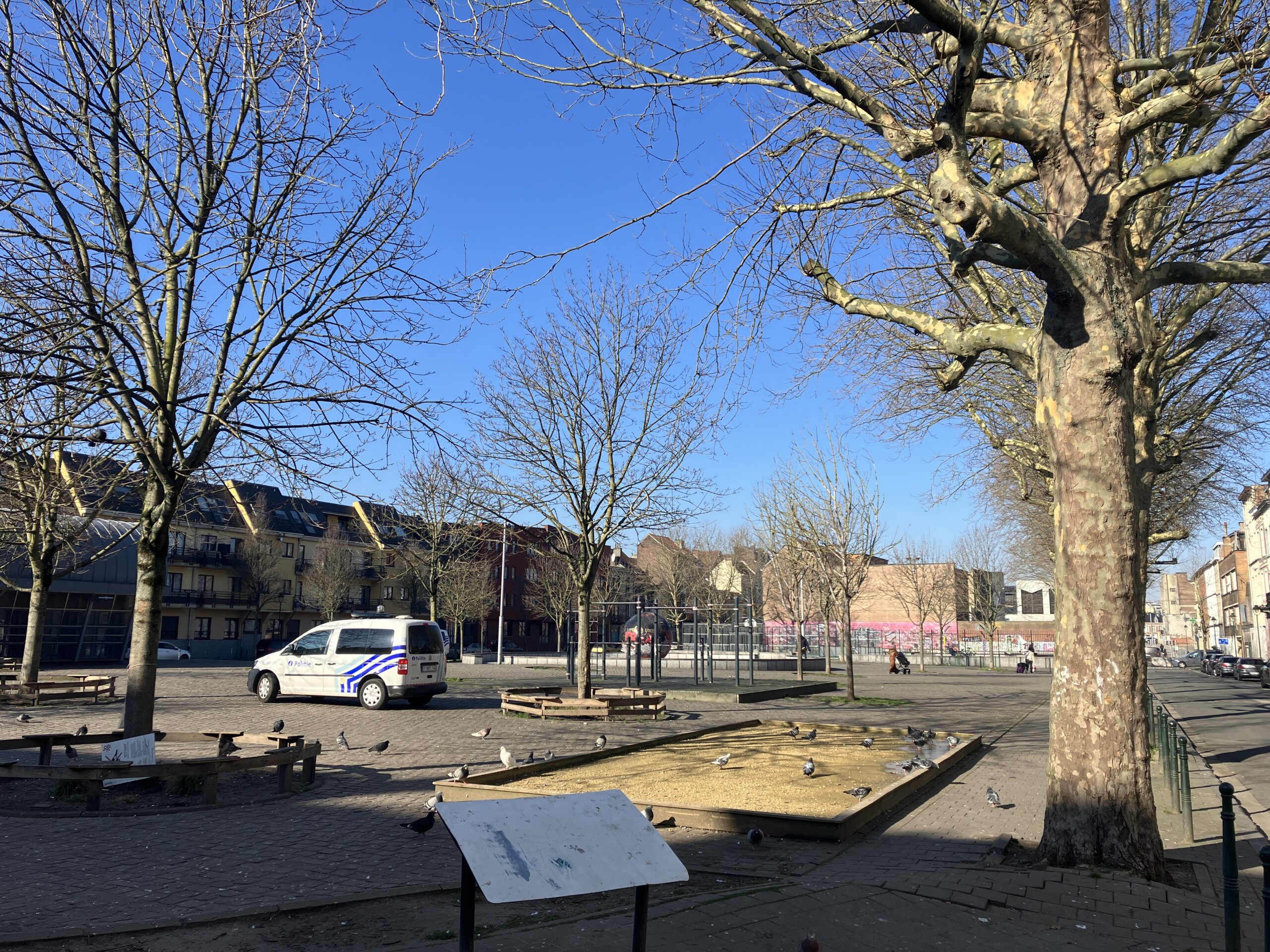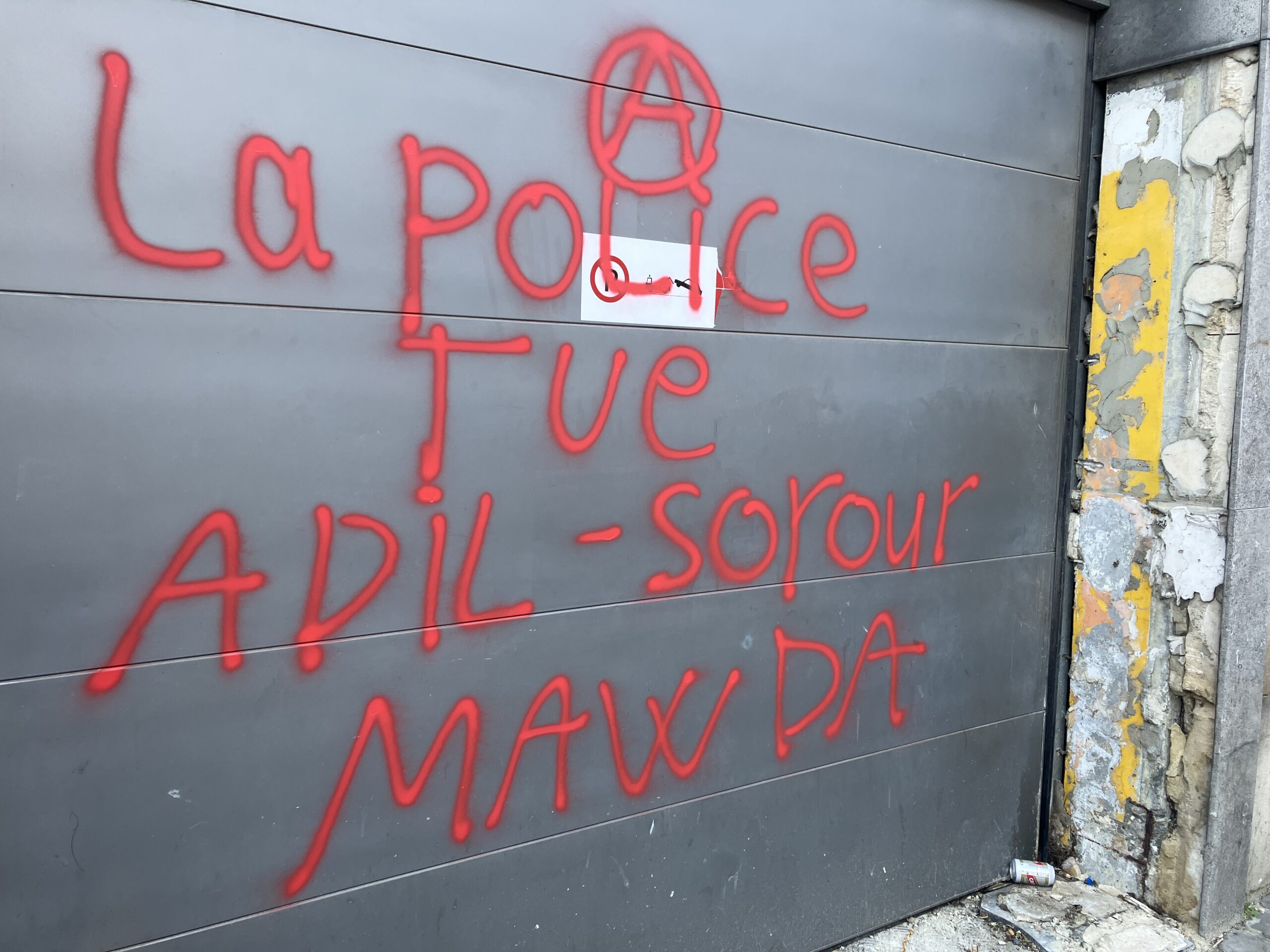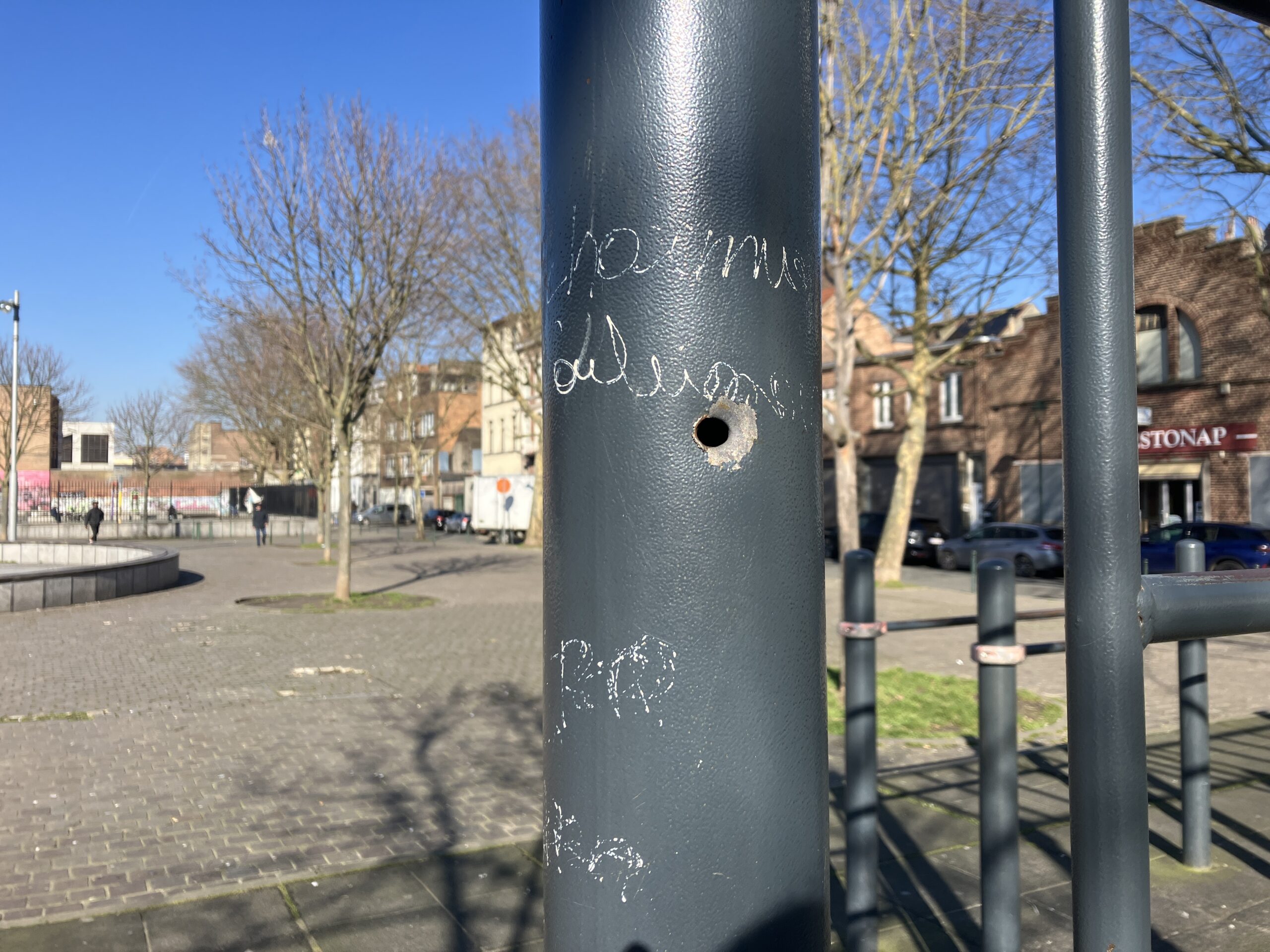Find out how Anderlecht residents are coping with a surge in drug-related violence;
✔ Cureghem has experienced three drug-related shootings within two weeks
✔ Drug dealers have shifted from selling weed to crack and cocaine
✔ Fear and violence are forcing residents to consider moving away from their homes
The string of shootings in Anderlecht has brought local concerns to a climax. The feelings of insecurity and lack of response mean residents avoid areas where drug gangs are operating, protect themselves with pepper spray, and even move away.
The cosmopolitan neighbourhood of Cureghem has been rocked by three drug-related shootings in just under two weeks, one of which was fatal. While the situation in the district has long been concerning, it has now become untenable, resident Jonas Deweer-Vanmeerhaeghe (they/them) said.
"I have lived here for almost five years, and it has never been the safest or the cleanest neighbourhood, I knew that when I came to live here," they told me in the living room of their industrial-style apartment. It is located a five-minute walk from the Clemenceau metro station, at the heart of the latest surge in violence. "However, the problems in the area have worsened."
Where drug dealers once sold weed and minded their own business, those assuming control over the area now are selling cocaine and crack. "The dealers now are extremely aggressive. If you get too close or look at them, they shout."
'Laughable measures'
As we walked to the scene of the recent shootings, Deweer-Vanmeerhaeghe pointed to the litter and furniture strewn across the pavements. "This has also worsened. Almost every week, entire living room suites and washing machines are dumped. And the police and authorities do nothing, it's like the Wild West. All this contributes to our sense of insecurity," they lamented.
Locals have long been discontented with authorities, but the response to the violence has further fuelled their anger. Politicians and security forces have held numerous meetings about the state of affairs, but the people at the heart of the issue have been left out of all discussions.

A police van next to the entrance of the Clemenceau metro station where the shootings took place. Credit: The Brussels Times
"If I were the mayor of Anderlecht, I would have gathered locals to discuss what had happened. I would have asked people what I could do to help. But there was nothing like that, no contact at all."
One visible measure authorities have taken is the increased police presence. When we reached Place des kheb, the site of Clemenceau metro station, we counted four police vehicles, including one armoured van. In the middle stands an empty playground with a climbing frame, punctured with a bullet hole. Parents won't let their children play here anymore.
"We locals laugh at the police presence," Deweer-Vanmeerhaeghe said. "Officers just sit in their police vans, staring at their mobile phones." A 19-year-old died after being shot at with a Kalashnikov on Saturday, while the police were barely 70 metres away. "By the time they realised, the perpetrator was already gone."
Problem shifting, not solving
Deweer-Vanmeerhaeghe sent an email to Anderlecht Mayor Fabrice Cumps' (PS) questioning his response. In their email – "which will likely go straight to Cumps' junk box" – they criticised the reinforced police presence as a short-sighted and brutal display of power. "But above all, a sign of political and police incompetence or unwillingness."
Locals believe such a temporary and localised solution is at the root of the spike in drug violence in Cureghem, causing a waterbed effect. This term refers to an undesirable situation that is countered in one place but reappears elsewhere. More specifically, the finger is pointed at the government's response to the rising crime and crack use around Brussels-Midi station in 2023, followed by targeted police actions.
"We predicted that the issue would just spread to our neighbourhood, which is exactly what happened." The drug dealers moved to Clemenceau, and so did the users. "We now see the same on a smaller scale. Police are present on one square, and the dealing and drug use simply shifted down the road. Last week, I walked past the police, turned the corner and came across dealers and a group of about ten people smoking crack on the street."
Deweer-Vanmeerhaeghe added that this type of police presence may work for PR and the press – MR leader Georges Louis-Bouchez spent his Valentine's Day posing next to the police vehicles on the ground – but it doesn't create a sense of security for locals.

Grafitti in Cureghem stating "Police kill" and the names of several victims of police aggression. Credit: The Brussels Times
"It only exacerbates the distance between the citizen and the police, which is exactly what we don't need here. Because Cureghem is a very diverse neighbourhood that, for all kinds of reasons, already feels very distant from the police." They referred to Cumps' decision to impose a curfew for under-16s on New Year's Eve as another isolating measure. "This only creates a distrust that will take years to repair."
We discussed the response from higher up, specifically outgoing Minister-President Rudi Vervoort's (PS) remarks that people should "just deal with it [the drug violence]". "In a way, I could live with it for a long time, but there is a limit. And I do not feel that they take it seriously. I think politicians do not understand the impact such violence has on our lives. When I tell people about my fear of being myself in my neighbourhood, many don't believe me, but that is my reality."
Protecting with pepper spray
When asked where the solution does lie, the reply was prompt. "We need a neighbourhood police force that is present on the ground. Not an army, but a police force that talks and listens to people." Locals also want a contact person who can be reached directly. "When we call about issues now, we are usually dismissed, or the matter is not followed up."
They also called on Cumps to open more drug-use spaces, increase access to mental healthcare, and develop programmes to address youth unemployment. "The same aggressive measures are being implemented repeatedly as so-called solutions, and we have seen they don't work. We should try a more humane approach for once."
In the interim, residents are taking their own precautions. Police told one of Deweer-Vanmeerhaeghe's neighbours to buy pepper spray— an illegal product in Belgium — to protect himself. Others don't go out after dark, and several of his neighbours have even moved away.
"Until very recently, I always refused to move because I love my neighbourhood. The vast majority of the people are welcoming and kind. The shopkeepers know my name and ask about my family, they know that I have a boyfriend. But on Saturday, I had a party, and many of my queer friends didn't dare to come. Those who did come got stuck in the metro station because of the shooting. For the first time, I am considering moving away too."
'Aware of shortcomings'
After my talk with Deweer-Vanmeerhaeghe, I put this criticism of the authorities' response to Cumps, and he replied with the following:
"This increased police presence 24/7 is the response to the war that certain gangs are waging for control of territories and dealing points and the extreme violence that results from it. It is a response to a crisis and not necessarily the tool that will enable us to combat street dealing. We are well aware that this response is insufficient since the last shooting took place while the police were present less than 100 metres away," he said in a written response.
"Outside this period of crisis, our daily action is to relentlessly arrest dealers to show residents that they are not abandoned. But these dealers are infinitely interchangeable, such is the large amount of money in circulation.
"That is why I have been saying for many months now that a more appropriate judicial response is needed, with investigations that make it possible to identify those who are at the head of the networks that control this trafficking. I am calling for more resources to be given to the federal judicial police so that they can carry out this identification work.
"As for mental health services and support for the unemployed, the residents are right, but these are regional, not municipal, responsibilities."

